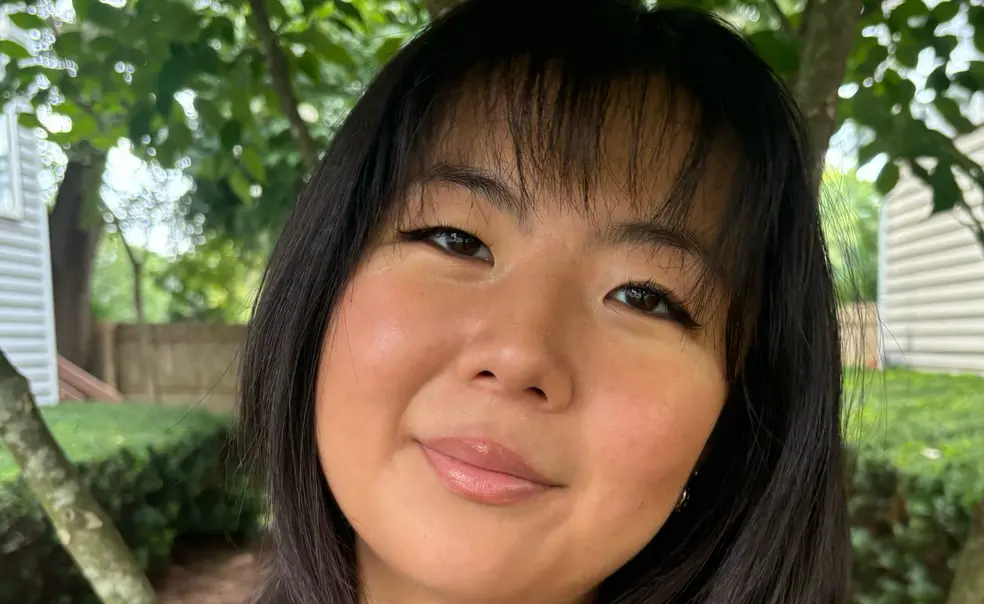Yejin Suh ’25 Publishes First Novel Inspired by Korean Mythology
The book: After a thousand years, the Soldier awakes, taking on the name Shadow. Shadow finds herself in the midst of war and schemes when she is captured and forced back into the court by Scarlet, whose sister she killed in her past life. Shadow’s power over darkness may be the secret to restore order, but she must figure out how to survive while concealing her past to her captor. Shadow and Scarlet find themselves increasingly attracted to one another, but their secrets have yet to be unraveled. The Last Soldier of Nava (Magpie) incorporates Korean Mythology and sapphic romance to create a gripping story in which a powerful girl’s past and present collide.

The author: Yejin Suh ‘25 is a writer who studied English literature at Princeton. She is from New Jersey and has spent time studying and living abroad in London, South Korea, France, and Nepal. She found her time in London particularly inspiring for her writing, and has drawn on her Korean American heritage to inspire her Korean Mythology-inspired fantasy novel. The Last Soldier of Nava is Suh’s debut novel.
Excerpt:
According to legend, the Soldier once drowned entire kingdoms in darkness.
A thousand years ago, the city of Nava – The Ninth City; the eternal city – flourished in the land today known as Ik-Song. It was ruled in tandem by the Bearer of the Moon and Bringer of the Dawn, kept in balance by the Dragons of East and West.
Until the Moon Bearer slaughtered the Dragon of the East in his search for power, and the City fell as consequence. The Dawn Bringer was never to be seen again. This is when the storms began; deadzones appeared.
The land warped and changed. But the most dangerous effect of all was a new weapon that rose from the spilled blood – a mercenary known as the Soldier . . .
Prologue
One Year Ago
The unnerving part was that she woke with no blood on her hands.
She examined them carefully, trembling, turning over the knuckles double-bound in wrapping that extended all the way up to her forearms. Spotless. Perfect. As if they had never touched anything before.
Breaths coming short, her hands slammed down roughly on the ground behind her, holding herself up. Gravel gritted against the underside of her palms. The right side of her face felt like it would split in two, from eye to lip; blood ran hot in the pocket of her mouth; cold, dank cavern air seeped into her clothing.
And the body lay cooling mere paces away. I’m sorry, she wanted to say, but her voice wouldn’t return. Not yet. She’d only awakened minutes ago, but this time felt different – this time felt like she’d risen out of the ground itself, compact dirt and slabbed stone somehow colliding under- ground to form her body, impossibly, like a red-rusted canyon: limbs heavy as stone, vision muddled as an eroding river. This time felt slower, weightier, harder than all the other times.
‘Can you stand?’ echoed a voice suddenly. She startled, scrambling back against the wall, hitting it with a hard slam. Usually she was quieter than this, stealthier; now, the maw-dark cellar loomed in front of her like the jaws of a beast, and she squinted into them.
Panting sharply, she couldn’t reply. In the moments that followed, a foot came into view under the sliver of moonlight striping through. Bare, sandalled. Wrinkled. An old woman’s foot, tough and leathery skin appearing from nowhere.
What was an old woman doing here? She tipped her head back against the wall, eyes darting from the body and back. There was no way to explain. She wouldn’t be believed. She — an unkempt, dirtied, unbloodied killer — beside the corpse of a saint. Facedown on the ground, long brown hair tangled around her arms.
She waited for the inevitable screaming, the panicking. But the old woman came into view, and she did neither. Her eyes remained unalarmed, demeanour calm. ‘I asked if you could stand,’ she said, not without some irritation. ‘Don’t you hear me, girl?’
She stilled. Searched this old woman’s face for some familiarity. Horror at the scene, or curiosity, even. But it stayed stagnant and closed.
And she felt immeasurable relief at this unreadable face, a face that withheld answers. So, she stood.
One hand braced against the stone, the other dangling as her legs folded up beneath her. Shaky. The rest of her body worked perfectly well — only the pain in her face made her want to pass out.
Who are you? she wanted to ask the old woman, who only stared dispassionately. Aren’t you afraid of me?
‘My name is Sae,’ the old woman announced, already turning her back. ‘And you’ll come with me.’
After a long moment, she followed. Then the two figures – both somewhat hunched and crooked – made their way out of the underground. And the moonlight around them seemed somehow warmer – stronger, effusive, more golden. Later, she would wonder if it had been a trick of the light.
Excerpted from The Last Soldier of Nava. Copyright © 2025 and published by Harper. Reprinted with permission of the author.
Reviews:
“The Last Soldier of Nava brims with all the things I love best: treacherous secrets, hidden identities, cutthroat court intrigue, and captivatingly complex characters whom you can’t help but to miss long after you’ve closed the book. Yejin Suh weaves together Korean mythology and sweeping fantasy with vibrant creativity, and pens the riveting island nation of Ik-Song―along with its inhabitants ― with beautiful mastery.” — Sophie Kim author of The God and the Gumiho












No responses yet